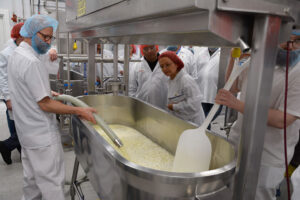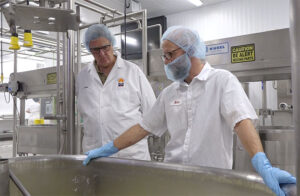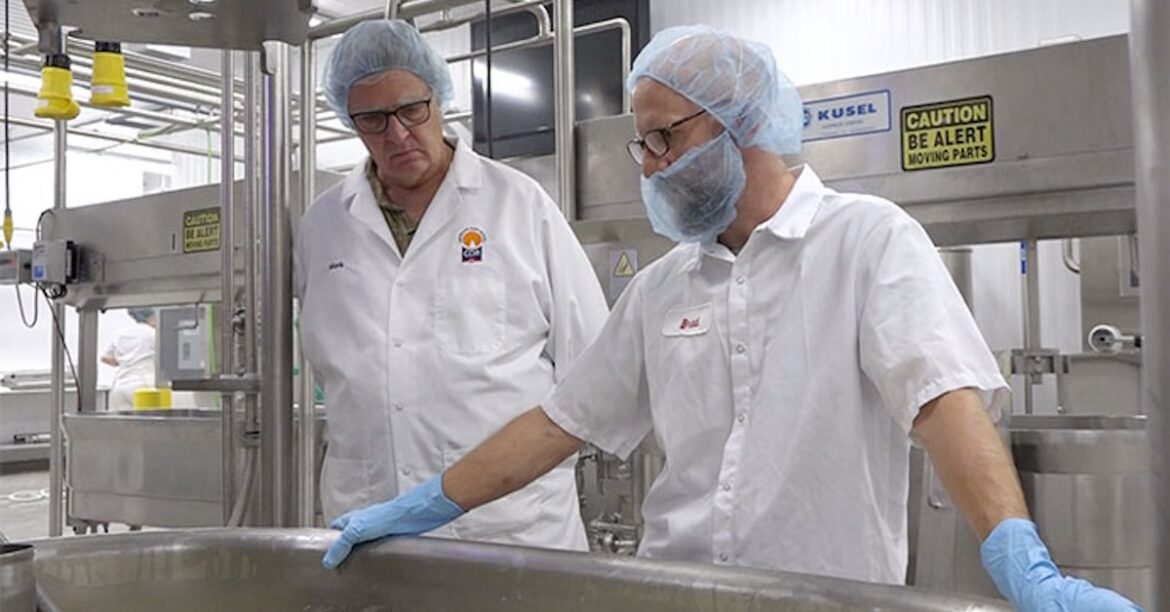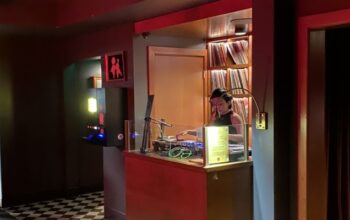After spending several years making yogurt, Brad Harkins decided to try something new. But he was still interested in working in the food industry, and he homed in on cheesemaking because of Wisconsin's reputation for producing America’s best cheese.
One of his friends recommended he check out the Center for Dairy Research at UW–Madison. Luckily for him, there was a job opening that matched his experience, and he was eventually recruited in 2023.
“It just seemed like an interesting job, and I went for it, and got the job with my previous experience. I got my foot in the door,” he said.
Despite Harkins’ rich knowledge in making yogurt and his experience in working with other dairy products, he was not permitted to make cheese independently or earn the title “cheesemaker,” with an official license, until he fulfilled the program’s essential coursework and apprenticeship requirements.
Meeting the requirement to become a licensed cheesemaker
Wisconsin is widely regarded for producing America’s best cheese, and its rich history in cheesemaking dates back to about 180 years ago. It is the only state that requires cheesemakers to go through apprenticeship and be licensed and has around 1,200 licensed cheesemakers who produce about 600 varieties of cheese.
Wisconsin’s cheesemakers have won more than 6,000 cheese awards, including 117 at the 2024 World Championship Cheese Contest — more than the next six top-performing countries combined.

There are vibrant interrelated associations, including the Dairy Farmers of Wisconsin, the Wisconsin Cheesemakers Association and the Center for Dairy Research, that advocate for improvement in technologies, develop markets for their products, offer support to members and conduct research and provide industry-specific training in collaboration with the University of Wisconsin System and Madison College.
Among the things that set Wisconsin’s cheese industry apart are the criteria individuals must meet to become a licensed cheesemaker in the state. These vary depending on the level of education and years of experience that a person would have been engaged in cheesemaking under the supervision of a licensed cheesemaker.
Fortunately for Harkins, he already had a pasteurizer license, a Preventive Controls Qualified Individual certificate from his previous work at a yogurt plant and on-the-job experience under the supervision of experienced licensed cheesemakers at the Center for Dairy Research. By meeting those requirements, Harkins only needed to complete courses in cheesemaking, production of safe dairy foods and dairy sanitation before he could become a licensed cheesemaker.
The excitement of learning new skills
Through his on-the-job training and completion of the courses, Harkins is delighted to have learned the essential skills in cheesemaking, and he became a licensed cheesemaker this year.
These skills include preparing, acidifying and curdling the milk; cutting and processing the curd; draining the whey and, finally, shaping and aging the cheese.
“Cheesemaking steps vary depending on the kind of cheese that you want to make and how solid you want it,” he said. “If you are making mozzarella, you are going to run it through another cooker, and stretch it, and put it into molds.”
With his new license, Harkins is now permitted to independently make cheese and to even train and supervise other people in cheesemaking.
“It is very fulfilling to be among a group of exclusive people, and there is a demand for licensed cheesemakers in the industry,” he said.
Attaining the rank of a Wisconsin Master Cheesemaker
So far, Harkins is enjoying his new career as a cheesemaker and wants to continue working at the center because of the hands-on experience that he gains in making different varieties of cheese.
“I like to learn more about it—I like to have that knowledge—and it’s something that I think just makes you a more valuable employee,” he said.
For Harkins and other licensed cheesemakers who are passionate about perfecting their skills in making specific varieties of cheese, they can enroll into a three-year Wisconsin Master Cheesemaker Program, administered by the Center for Dairy Research, after 10 years of experience in cheesemaking.
This is like receiving a PhD and is unique to Wisconsin. The certificate gives the authority for Wisconsin Master Cheesemakers to use the “Wisconsin Master Cheesemaker®” on their products to indicate they supervised every step of the cheesemaking process.






